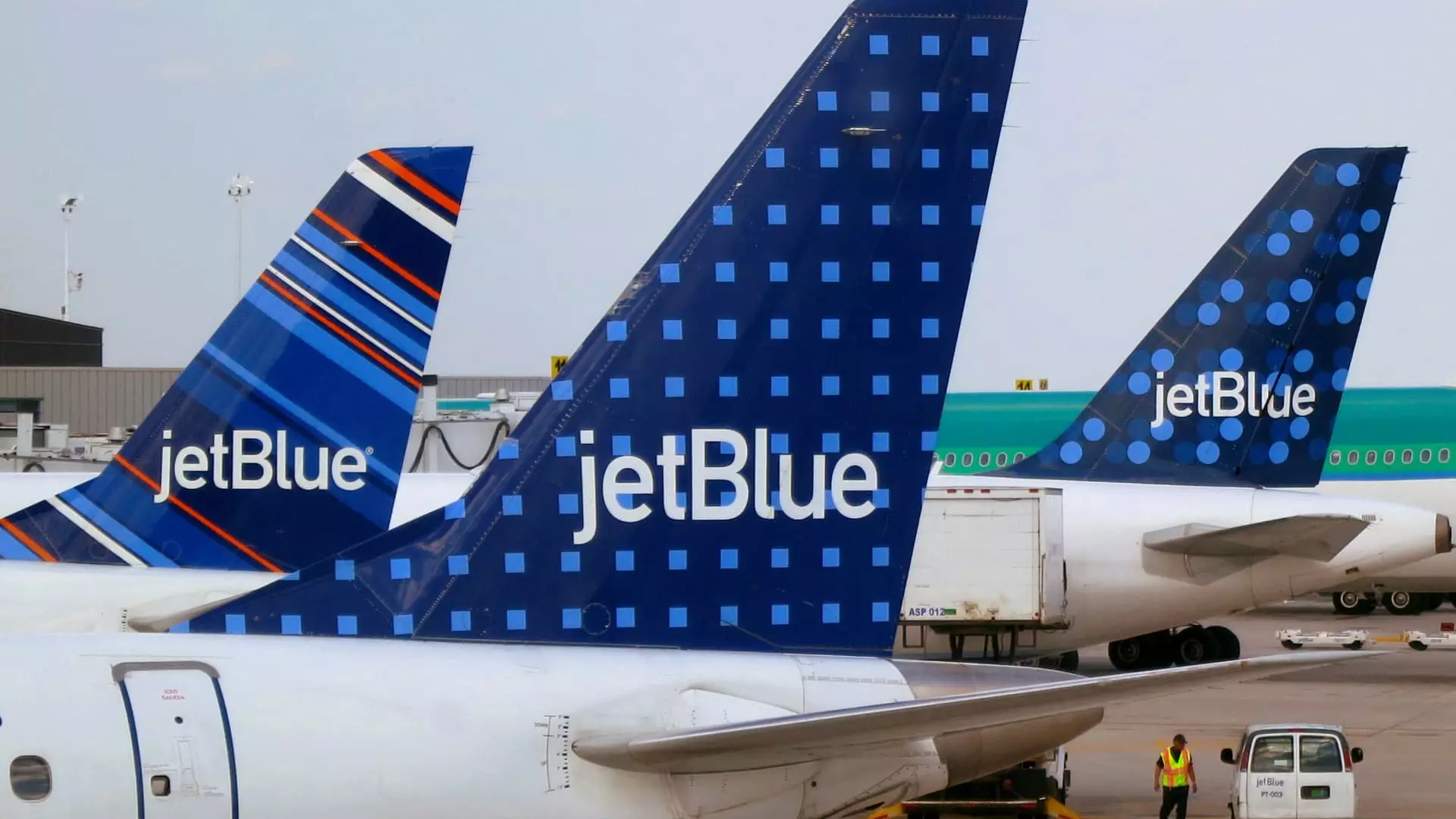In a landmark decision announced by the Department of Transportation (DOT), JetBlue Airways has been fined $2 million for what it labeled as “chronically delayed flights.” This unprecedented action marks the first time the DOT has imposed a penalty of this nature on an airline, signaling a new era in the regulation of airline performance standards. The investigation unveiled that JetBlue operated four specific routes that were plagued by significant delays, affecting numerous travelers from June 2022 through November 2023.
Among these routes, flights from New York’s John F. Kennedy International Airport to Raleigh-Durham International Airport in North Carolina, as well as several routes within Florida and to Connecticut, were the most affected. The severity of the delays prompted officials to intervene, as it became evident that JetBlue was responsible for over 70% of disruptions on these routes. Such a percentage elucidates a troubling trend within the airline’s operational management, raising questions about the effectiveness of its scheduling practices.
The DOT’s decisive action represents a heightened commitment to ensuring airlines adhere to realistic scheduling practices. Transportation Secretary Pete Buttigieg’s statement emphasized the expectation that airlines should align their flight schedules with the realities faced in air travel, particularly as airports continue to grapple with historical congestion. This new regulatory approach effectively communicates that chronic flight delays will not be tolerated and that airlines must be held accountable for consistent operational shortcomings.
The criteria used by the DOT to designate flights as chronically delayed are crucial in understanding the depth of the issue. A flight is classified as chronically delayed if it operates at least ten times a month and arrives over 30 minutes late more than half of the time. JetBlue’s failure to adjust its timetables to mitigate these delays points to systemic issues within the airline’s operational strategies, not merely isolated incidents.
In the wake of the fine, JetBlue issued a statement expressing their views on accountability and the broader challenges facing the airline industry. The carrier argued that the government shares responsibility for air travel reliability due to its management of the air traffic control (ATC) system. JetBlue called for modernization of outdated ATC technology and highlighted ongoing staffing shortages among air traffic controllers as significant factors contributing to delays.
This assertion raises an important discourse concerning the collaborative responsibility shared between regulatory bodies and airlines in ensuring prompt travel. While JetBlue’s acknowledgment of these overarching challenges is commendable, it remains to be seen whether this acknowledgment translates into tangible changes or if it is simply a defense mechanism in the face of significant penalties.
With only 71.3% of its flights arriving on time from January to September 2024, JetBlue’s ranking plummeted to ninth out of ten U.S. airlines. Interestingly, this figure reflects an improvement from the previous year, albeit a modest one that highlights the uphill battle the airline faces in terms of operational efficiency. The industry will be watching closely to see whether this fine catalyzes significant changes in JetBlue’s operations, and how it might influence the operational strategies of its competitors.
Moreover, as the DOT continues its investigations into other airlines for similar scheduling discrepancies, JetBlue’s situation signals a robust commitment to advancing operational accountability across the board. Airlines must now navigate a landscape that demands not just profitability, but also reliability—a vital component of customer trust and satisfaction.
Ultimately, JetBlue’s $2 million fine serves as a critical reminder for the entire airline industry about the necessity of adhering to realistic scheduling and maintaining high service standards. While JetBlue’s proactive stance on advocating for better government support in managing air traffic control is noteworthy, the real test will lie in the airline’s ability to implement substantive changes.
As consumer expectations evolve, airlines must recognize that chronic delays and inefficiencies threaten not only their reputations but potentially their market standing as well. The scrutiny placed upon JetBlue is likely just the beginning; growth and improvement in the aviation sector will hinge on a collective effort to address operational challenges and prioritize the customer experience.


Leave a Reply